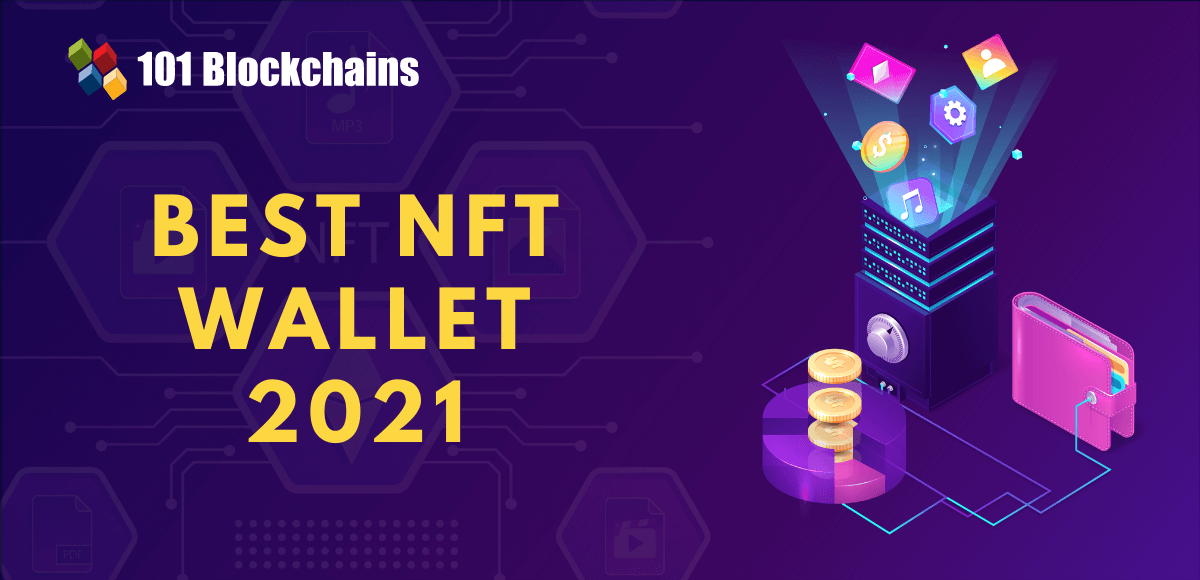Learn how blockchain truly works, master key definitions, and uncover what makes smart contracts so "smart." Dive into the fundamentals, gain valuable insights, and start your blockchain journey today!

Reviews
Diego Geroni
on April 17, 2021
Blockchain in Finance 2022
Blockchain introduced radical, innovative trends that imposed a formidable impact on almost all industries, including finance, supply chain management, and healthcare. Around two to three years ago, blockchain startups were coming into the public eye. Now, almost every modern enterprise is looking for opportunities with blockchain technology. Blockchain is basically a decentralized ledger technology that works as a distributed ledger. It was able to gain mainstream attention in 2009.
Therefore, common assumptions suggested the application of blockchain in finance only. Interestingly, the features of blockchain also indicate its potential to affect the finance industry profoundly. As the applications of blockchain expand across various industries, it is important to look at the role of blockchain in finance sector in the coming times.
The following discussion provides a detailed impression of the significance of blockchain in the financial sector. Readers could find out why blockchain is suitable for the modern finance sector and the use cases of blockchain for finance. In addition, the discussion would also reflect on expected trends in 2022 for blockchain in finance function.
Want to learn fundamentals of trade finance and existing processes? Enroll Now in Enterprise Blockchains and Trade Finance Course
Advantages of Blockchain for Finance Sector
Generally, any new technology is difficult to understand. Most important, it is quite uncommon to find a technology with a name that describes exactly what it does. In that case, blockchain is the perfect example as it means exactly what its name suggests. Blockchain technology allows the creation and storage of blocks of information in a chain.
Every new block created for a transaction is included in the chain to create a ‘digital ledger.’ Blockchain ledgers have introduced profound advantages over conventional digital ledgers, thereby promoting the scope for using blockchain in finance. So, what exactly separates blockchain from other digital ledgers?
The following important benefits of blockchain showcase the reasons for considering application of blockchain in finance sector.
-
Decentralization
Blockchain technology enables the distribution of a digital ledger to various nodes. As a result, there is no need for a singular third party to process and store transaction data. So, the application of blockchain in finance function can prevent the possibilities for hacking transaction data due to the lack of a central repository for storing transaction data with a singular security system. Furthermore, blockchain technology also removes the controlling power of intermediaries over financial transactions. As a result, blockchain applications in finance could ensure better accessibility and cost-effectiveness.
-
Immutability
The most important detail about blockchain that provides a formidable answer to ‘Is blockchain the future of finance?’ is immutability. Once you have written blocks and added them to the blockchain, they are not subject to any modifications. Immutability provides a wide range of massive benefits with implementation in regular business transactions. Basically, blockchain ledgers can serve as trusted information sources.
-
Security
Among the many factors that reinforce the demand for implementing blockchain in banking, security with blockchain technology definitely stands apart. Blockchain leverages encryption for security of its transaction ledger. As a result, only individuals with a particular key code could obtain access to the data. Furthermore, blockchain transactions are decentralized and peer-to-peer, thereby ensuring prominent levels of security.
Use Cases of Blockchain in Banking and Financial Services
Now that you know about the distinct features of blockchain that make it suitable for the financial sector, it is important to know how it can transform the finance industry. It is crucial to understand answers to ‘How is blockchain used in finance’ through the perspective of challenges in the financial industry resolved by blockchain. The finance industry has been encountering various challenges for a substantial period of time.
Although technological advancements have been resolving conventional issues, certain new technologies have resulted in the rise of profound issues. The existing financial market is stuffed with various fintech solutions. Therefore, financial service providers are constantly confused about the solution that would fit their requirements effectively. Here are some of the ways in which applications of blockchain in finance can resolve prominent challenges for finance sector.
Issues with Security and Transparency
Financial services all over the world still follow the traditional, centralized, and multi-layered approach to their operations. Financial data lies largely in centralized databases and has to pass through multiple intermediaries. At the same time, the centralized systems don’t offer transparency. Furthermore, the security of data depends solely on database security and intermediaries.
On the other hand, databases with the maximum levels of protection are vulnerable to hacking and data breaches. The lack of transparency often leads to complicated security threats as no one is aware of any discrepancies until the identification of a data breach or other mishaps with the system. Although every individual wouldn’t agree with the idea of transparent financial records, a certain level of transparency is beneficial for financial service providers and customers.
The applications of blockchain in finance and banking help in ensuring transparency and security simultaneously. The foremost trait of blockchain for ensuring security and transparency refers to immutability. Without the scope for altering data, blockchain can ensure security, correctness, and authenticity of data. The application of blockchain in finance sector also capitalizes on benefits of privacy.
Blockchain applications feature two security keys, such as a private key and a public key. The public key is accessible for all users on the network, and the private key is accessible only to the stakeholders in a transaction. Therefore, the users in a network can view the transaction, and the transaction details will be visible only to participants. As a result, blockchain can maintain transparency in the financial system while safeguarding confidential financial information of stakeholders in transactions.
Blockchain will be going to rule in the 2022 and beyond. If you are not sure why, check out our guide on the Importance of Blockchain in The Upcoming Years.
Cost Issues
The financial sector has to invest a considerable amount of money across various operations, primarily due to centralization. Financial service providers have to invest massively in bookkeeping, database maintenance, central database procurement, value transfer systems, database security, labor cost, and commissions of intermediaries. Furthermore, all of these investments are recurring and financial service providers have to put in money for them regularly. As a result, all the additional costs can make a financial service system quite expensive.
The cost advantage of blockchain provides a perfect answer for ‘Is Blockchain the future of finance?’ as it can achieve profound cost reductions for financial service providers. According to a recent study, distributed ledger technology can help in reducing the costs for financial service providers by almost $15 billion to $20 billion annually by 2022. Blockchain technology can improve transparency and ensure cost reductions while focusing on security. The applications of blockchain in banking can help in implementation of smart contracts, thereby reducing the costs of bookkeeping, intermediaries, and value transfers.
Auditing Issues
Auditing is an integral aspect of the financial sector. As a long and highly expensive process, financial auditing also experiences troubles due to the lack of transparency. Without any transparency, intermediaries could expose certain bits of information during the audit process. As a result, the financial sector has to encounter issues of unethical behavior, irregularity in compliance, extended auditing time periods, and dishonesty.
The use of blockchain in finance sector could streamline the auditing process. The immutable blockchain records enable auditors to check them for proper fulfillment of compliances with comprehensive transparency into events of the finance organization. Blockchain can help in maintaining transparency, thereby ensuring honesty and ethical behavior from financial service providers. It is easier to track any suspicious transaction with blockchain. Furthermore, blockchain allows quick access to all financial information, thereby reducing the time required for auditing processes.
Risk Management
The financial sector has to encounter considerable levels of risks in offering loans, such as establishing trust in intermediaries. Other risks include failure of a counterparty to address their obligations and the credit risk arising from information asymmetry. Furthermore, the focus of commercial banks on monitoring and tracking loan usage ultimately depends on intermediaries. Financial service providers do not have proven measures and strategies for dealing with such risks.
The use of blockchain in banking and financial services could enable peer-to-peer transactions. Therefore, financial service providers can exclude their concerns regarding the role of intermediaries with peer-to-peer transactions. Blockchain technology can enable the use of smart contracts for faster transaction settlement, while data immutability with blockchain improves reliability. Most important of all, recording all transactions on the network can help in reducing fund management and credit risks. As a result, the implementation of blockchain in finance function could enable financial service providers for effective risk management.
We’re excited to invite you to the Blockchain in Finance 2022 virtual conference taking place on April 22 at 3 pm CEST / 9 am EDT.
Key Trends Expected for Blockchain in Finance in 2022
A clear impression of the advantages of blockchain technology for finance sector and how it can resolve challenges faced in the existing financial landscape definitely shows the prospects for blockchain in finance in 2022. Let us take a look at the trends expected for blockchain applications in finance in 2022.
- According to experts, the applications of blockchain in the financial sector in 2022 would witness improved venture capital investment. Many financial services are developed using blockchain technology. The investment in applications of blockchain in finance has been increasing substantially, especially in Europe. Many startups are slowly showcasing effective progress in the financial service ecosystem with blockchain.
- Blockchain is playing a crucial role in tokenization, which is a process of issuing tokens on a blockchain with representation of real assets. Tokenization is currently one of the notable implementations of blockchain for finance sector with higher activity and profound VC investments.
- The utilization of blockchain in banking is also finding new grounds with the introduction of Central Bank Digital Currencies. CBDC is basically a new type of central bank money based on blockchain. Furthermore, financial service providers are looking for opportunities to leverage blockchain for efficient fund administration. The application of blockchain in fund administration can help financial service providers in dealing with the pressure of managing costs.
- The next important trend that you could witness in the applications of blockchain for finance in 2022 refers to investment. According to Crunchbase data, global blockchain companies have procured around $23.2 billion in investments since 2016. Additionally, US companies have been able to draw in investments amounting to $3.3 billion during the same period.
However, the comparative flatter deal flow between 2019 and 2020 due to a global pandemic has created doubts. Many industry enthusiasts are trying to reflect on ‘Is blockchain the future of finance?’ after the global pandemic. However, other industry experts such as Brooke Pollack, Managing Partner at Hutt Capital, have different views on the adoption of blockchain in finance in 2022. Hutt Capital is a venture capital fund for blockchain initiatives.
Pollack stated that deal activity depicted growth in the fourth quarter with a favorable year for companies in blockchain landscape. According to Pollack, strong performance of blockchain companies resulted in increased investments for adopting blockchain in finance sector.
Furthermore, blockchain startups are also introducing new tools and products in the decentralized finance or DeFi ecosystem. DeFi is basically financial software developed on blockchain with a modular architecture. One of the prominent examples of DeFi applications refers to BitPay. BitPay offers Bitcoin payment solutions for organizations and businesses.
According to Crunchbase data, BitPay has been successful in raising investments of around $72.5 million. On the other hand, BlockFi has been successful in drawing almost $160 million in investments. Therefore, it is clearly evident that 2022 will definitely witness many changes in the use of blockchain in finance function.
Conclusion
On a concluding note, it is quite clear that blockchain technology is an imperative solution for many issues existing in the financial industry. As enterprises and startups continue to find new perspectives on ‘how is blockchain used in finance,’ new concepts such as DeFi and CBDCs can make a mark in 2022.
Furthermore, financial service providers would continue to look up to blockchain technology for transparency, security, risk management, and faster transactions. However, the adoption of blockchain in finance continues to encounter various challenges. The capability of organizations to anticipate new trends related to blockchain applications in finance and evolving functionalities of blockchain can spell better outcomes.
*Disclaimer: The article should not be taken as, and is not intended to provide any investment advice. Claims made in this article do not constitute investment advice and should not be taken as such. 101 Blockchains shall not be responsible for any loss sustained by any person who relies on this article. Do your own research!






